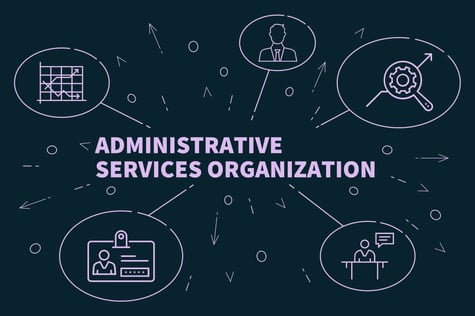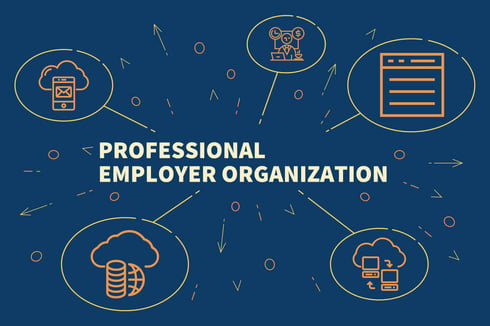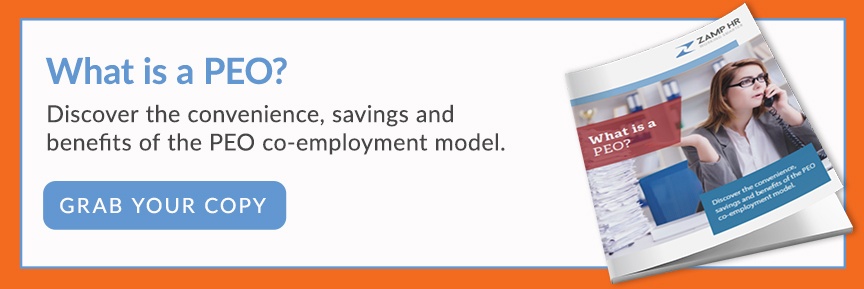As a business owner, you face many challenges. You have to have the right marketing and sales campaigns to initiate positive growth. You invest in Research and Development (R&D) to launch new solutions. And you certainly have to keep your customers satisfied. Despite all of those being critical components of the modern business, they're not what most business owners struggle with. That honor belongs to human resources.
The average small business owner spends up to 40% of their time dealing with HR administration. 50% of business owners admit that they're unhappy with their HR administration processes. And 54% say they need better payroll practices.
This isn't a small business problem. It's every businesses' problem. 64% of CEOs worry about finding the right talent. According to Deloitte, HR compliance ranks among enterprises' most significant problems in today's administrative-heavy ecosystem. There is a reason that 80% of companies who outsource HR (regardless of the type) note the positive benefits and say they would do so again.
But not all outsourced HR partners are the same. There are payroll processors, administrative services organizations (ASOs), and professional employer organizations (PEOs) — all of which handle some (or all) HR administrative burdens. In the past, we've covered the differences between PEOs and payroll processors. But what about ASOs? What are the differences between ASOs and PEOs?
What is an ASO?

Administrative Services Organizations (ASOs) handle HR administration for other businesses. In other words, businesses can outsource their HR administrative needs to ASOs to reduce their HR burdens. ASOs can handle a variety of HR-related tasks, including:
- Benefits administration
- Payroll processing
- Posting requirements
- HR Legal Compliance
- Risk management
ASOs are alternatively referred to as “Administrative Services Only.”
What is a PEO?

Professional Employer Organizations (PEOs) are similar to ASOs in many ways. A PEO does everything that an ASO does.
However, there's a big difference between the two: a partnership with a PEO allows businesses to access better benefits plans, better workers’ compensation rates, and even lower SUTA rates.
Payroll taxes are filed under the PEO's Federal Employer Identification Number (FEIN), and the PEO is responsible for submitting the taxes to the appropriate agencies and ensuring that all filings are accurate and timely.
This is all made possible through co-employment.
Co-employment is a legal tool that gives PEOs the flexibility to tackle some of the more complex HR administrative needs. At the same time, co-employment does not mean a loss of control.
Instead, co-employment opens up new opportunities for businesses. For instance, co-employment allows for:
Access to Better and More Affordable Benefits
The average small business pays significantly more for benefits than large businesses. This is due to their pooled risk. Large enterprises can bring thousands of employees to the negotiating table. This lowers risks for the benefits providers, so they can offer better benefits at a lower rate.
Only 25% of small business employees are "extremely satisfied" with their benefits packages compared to 58% of employees at large companies. PEOs take employees from all of their clients and pool them together. So, instead of bringing 50 employees to the benefits negotiating table, they bring thousands. The co-employment relationship gives businesses access to those benefit plans. ASOs cannot do this.
Shared Liability
ASOs don't share liability. If they make a mistake on payroll, you're the one who deals with the consequences. PEOs share HR liability with your business, so they have extra incentives to ensure that payroll is error-free. This is especially critical in an environment where payroll errors impact 54% of the American workforce, and 49% of them start looking for a new job after just two of those errors.
Simplified Payroll
PEOs can remit payroll on behalf of the employers. Since PEOs are "employers of record," they can handle nuanced taxes for the employer that ASOs cannot touch.
Worker's Comp Plans
PEOs also give client businesses access to the PEO's workers' compensation policy. You won't pay any upfront fees or down payments, which means the policy is pay-as-you-go.
SUTA Rates
Again, thanks to co-employment, businesses can access a PEO's SUTA rate. In most cases, this means lowered tax burdens.
All of these benefits are afforded by co-employment. Again, it's important to emphasize that co-employment does not mean you lose control of your employees. PEOs can't hire, fire, or discipline employees. You're still responsible for the day-to-day operations of your business. It's easiest to think of co-employment as a legal tool that allows PEOs to have a more substantial impact on your HR administrative landscape.
All of these benefits are afforded by co-employment. Again, it’s important to emphasize that co-employment does not mean you lose control of your employees. PEOs can't hire, fire, or discipline employees. You're still responsible for the day-to-day operations of your business. It's easiest to think of co-employment as a legal tool that allows PEOs to have a more substantial impact on your HR administrative landscape.
Choosing Between ASO vs. PEO
Typically, the choice comes down to needs. If you want a more comprehensive HR administrative solution, PEOs can leverage co-employment to meet more needs than ASOs. For small-to-medium-sized businesses, this means access to more comprehensive and affordable benefits and a more rigorous payroll and tax structure. It also means SUTA administration and claims assistance.
Price is another consideration. When you look at national PEO chains, they're usually more expensive than ASOs. However, local PEOs don't have the high marketing costs, operating costs, and overhead that national PEOs have.
That means that ASOs and local PEOs are nearly identical on price. The choice comes down to co-employment. Do you want your outsourced HR solution to tackle more responsibilities and share liability with you? If so, then PEOs are the right choice.
Which Option is Better for You?
There's a reason that companies that use PEOs grow 7 to 9% faster, are 50% less likely to go out of business, and have lower turnover than their competitors. PEOs provide incredible value to employers. Local PEOs cost around the same as ASOs, but co-employment provides better overall value.
There are rare circumstances where an ASO may be desirable. For example, if your business already has amazing benefits at a low rate, doesn't need expedited claims management, and already has an extremely low SUTA rate, you won't gain any much more value out of a PEO than an ASO. However, even in this case, many businesses choose PEOs due to their liability relationship, which helps glue both businesses to the same core objective.



